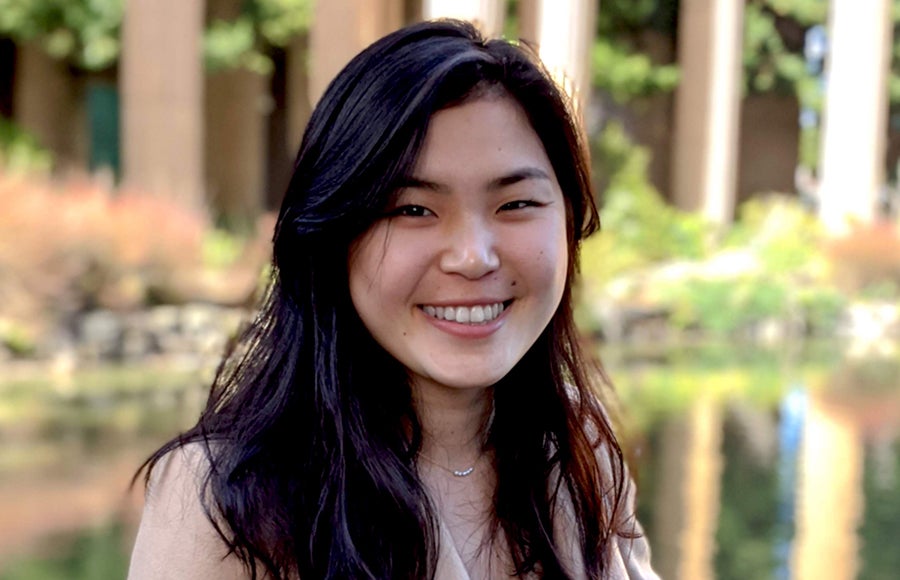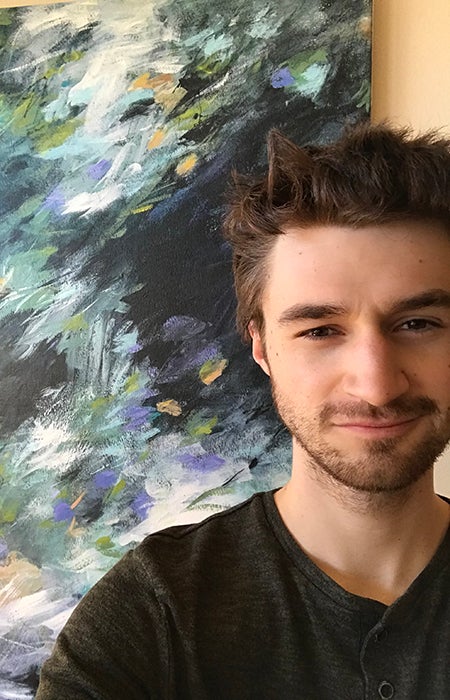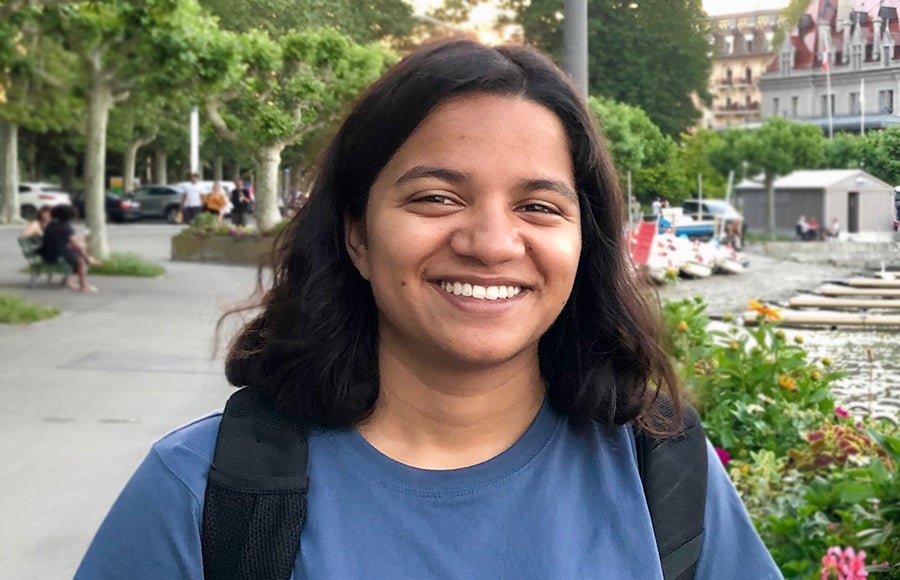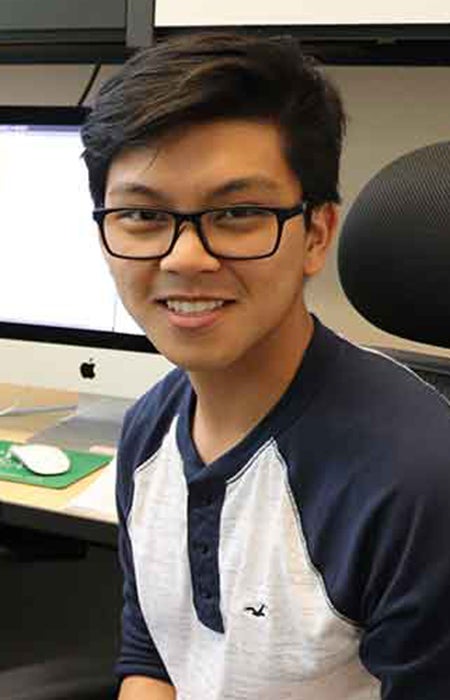
4 USC Dornsife undergraduates are named 2020 Goldwater Scholars
Four undergraduates at the USC Dornsife College of Letters, Arts and Sciences have been awarded scholarships from the Barry Goldwater Scholarship and Excellence in Education Foundation.
The students, whose majors range from chemistry to linguistics and cognitive science, were chosen from a pool of more than 1,300 undergraduates nominated by 461 institutions in the United States.
Emily Yang entered USC Dornsife as a neuroscience major but wanted more math.

(Photo: Courtesy Emily Yang.)
“A friend told me about quantitative biology, which combines many fields of STEM [science, technology, engineering and math],” she said. “It sounded intimidating, but I’m so happy I joined my tight-knit and challenging major.”
The junior, who grew up in Honolulu, says she would like to earn an M.D., Ph.D. in psychiatry and conduct research into mental illness, putting the knowledge from her USC Dornsife major to good use.
“I hope to use computational methods to identify markers for mental illness early in its development,” she said.
Yang says the Goldwater Scholarship is perfect for undergrads who are passionate about research. “Once accepted, you are connected with a diverse and large community of scholars who are all eager to give advice.”
She said she was grateful for the guidance she has received from her research mentors, Donald Arnold, professor of biological sciences and biomedical engineering at USC Dornsife, and Haining Yang of the University of Hawaii Cancer Center.
“They are all so smart, and have taught me so much. I’m grateful that they took the time to teach me despite their busy schedules.”

(Photo: Courtesy Aaron Ghrist.)
Aaron Ghrist, a junior earning degrees in both chemistry and applied and computational mathematics, plans to complete a Ph.D. in applied physics once he graduates from USC Dornsife.
“My ultimate goal is to apply spectroscopic techniques and nanoscience to study fluid surfaces and make advances towards establishing experimental quantitative bounds to the Navier-Stokes equations, making progress on one of the Millennium Prize Problems,” he said, demonstrating a level of intellectual prowess well beyond that of a certain writer.
Ghrist, a native of Colorado Springs, Colorado, who now hails from Spokane, Washington, has long nurtured a love of math.
“Ever since high school I knew that I wanted to pursue a math-based major and career because of the perspective it allows and types of problem-solving it enables,” he said. He added a chemistry major to his studies after conducting research under the tutelage of Jahan Dawlaty, associate professor of chemistry at USC Dornsife.
“My background in mathematics gives me the ability to solve problems that chemists often avoid, while my involvement with experimental science gives me exposure to nascent problems that I might struggle to find as only an applied math major,” he said.
Ghrist thanked mentors Dawlaty, Stephen Bradforth, professor of chemistry and divisional dean for natural sciences and mathematics, and Bernd Winter of the Fritz Haber Institute of the Max Planck Society in Berlin, for their patient encouragement.
“I am a better scientist and certainly a better person than when I started at USC,” Ghrist said.
Leena Mathur plans to work in academia after earning a Ph.D. in computer science.

(Photo: Courtesy Leena Mathur.)
“My goal is to conduct research and lead a group that advances human-centered artificial intelligence to benefit society,” said Mathur, a junior who is pursuing a triple major — cognitive science and linguistics at USC Dornsife and computer science at USC Viterbi School of Engineering.
Mathur, who grew up in California’s Silicon Valley, says she chose her combination of majors so she could better undertake research in human-centered artificial intelligence.
“My courses are building my academic foundation in algorithms and mathematics, as well as in human behavior, cognition and the ability to acquire, interpret and produce language.”
She credits her mentors — Maja Matarić, Chan Soon-Shiong Chair and Distinguished Professor of Computer Science, Neuroscience, and Pediatrics; Khalil Iskarous, associate professor of linguistics at USC Dornsife; and Michael Shindler of the University of California, Irvine — with “inspiring me and supporting my pursuit of a research career.”

(Photo: Courtesy of Oak Ridge Institute for Science and Education.)
Stephen Jon Quiton is studying applied and computational mathematics at USC Dornsife and chemical engineering at USC Viterbi.
“I’ve loved math since I was in elementary school, and I had an amazing chemistry teacher in high school,” he said.
He enrolled at USC as a chemical engineering major, seeing it as a chance to combine his two interests, but later, he decided to study math as well “because of my research interests and because I miss the fun of learning math.”
Quiton, who calls Franklin, Tennessee home, is planning to pursue computational and theoretical chemistry research after earning a Ph.D.
“I also plan to devote my time to Christian ministries,” added the sophomore.
He thanked his mentors, Shaama Sharada of USC Viterbi and Vyacheslav Bryantsev of Oak Ridge National Laboratory in Tennessee, for their guidance.
“I didn’t necessarily have the most experience when I first entered their labs, but they entrusted me with significant projects nonetheless, and I am grateful for that.”
About the scholarship
The U.S. Congress established the Barry Goldwater Scholarship and Excellence in Education Foundation in 1986 as a living memorial to Sen. Barry Goldwater just prior to his retirement from the U.S. Senate.
All of USC’s Goldwater Scholarship recipients sought assistance with their application from experts at USC Academic Honors and Fellowships. The office helps USC students earn competitive fellowships and other prestigious honors, providing advice, essay reviews and mock interviews to help them prepare for national competitions.